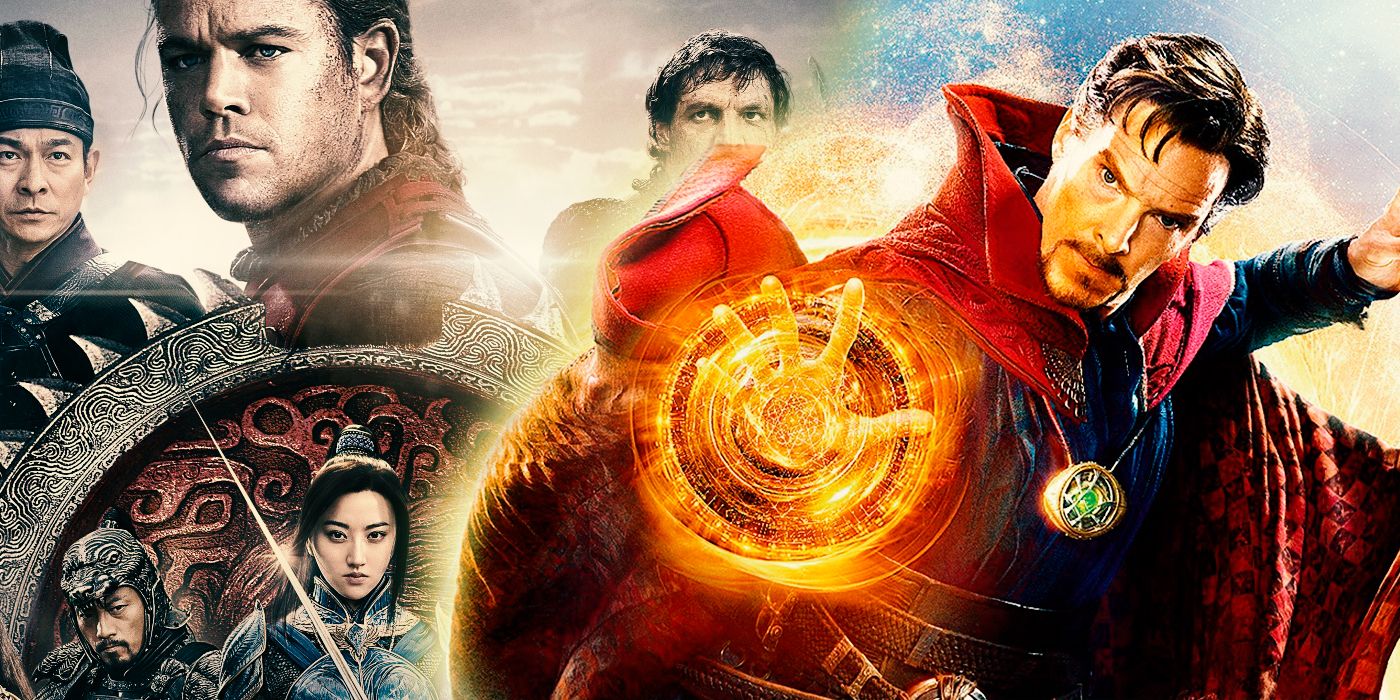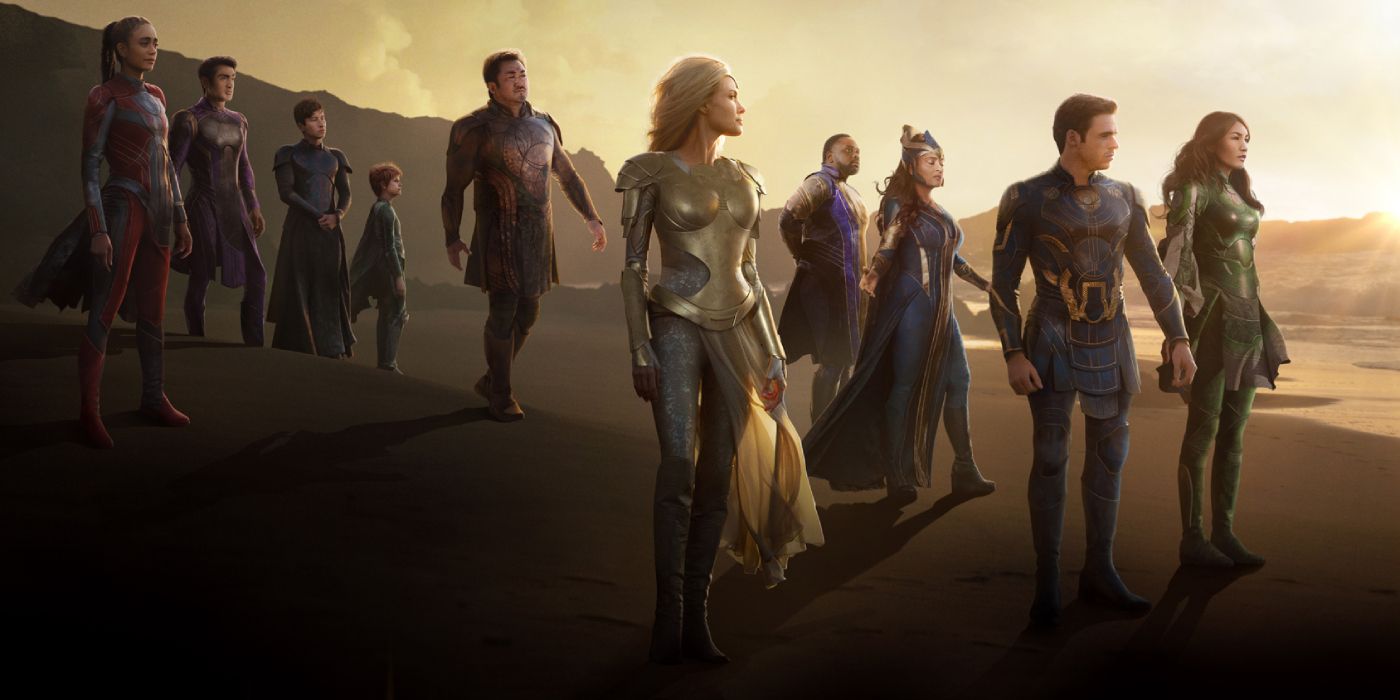Over the last year, the Chinese Communist Party-ruled government has cracked down on all sectors, including entertainment, which is being more heavily controlled than ever before. While it might seem like a distant problem for the executives in Hollywood and even audiences in the U.S, its impact will be felt over time, just as China's value in box office revenue has had a notable, visible impact on Hollywood films in the last ten years.
In early September, China's National Radio and Television Administration published new guidelines for everyone involved in culture and entertainment. These guidelines restricted certain reality shows, banned K-Pop, limited fan culture and even the pay that actors and high profile figures can receive. The most worrying of these guidelines are those aimed at correcting "wrong moral standards" and "incorrect political views," as well as those specifically targeting anything that appears out of line with the common view of the Chinese Communist Party. As an example, the party -- whose leaders are all ancient old men from Mao Zedong's regime and their children -- has an antiquated and particular view of masculinity. The guidelines and state-run media make that clear in no uncertain terms, by using derogatory wording to describe men who don't conform.
Hollywood has already been allowing the CCP to export its censorship policies, knowingly or not, in order to tap into the Chinese market. While this much has been speculated over the course of the last decade, it was seemingly confirmed in a 93-page report published by PEN America, condemning Hollywood for kowtowing to some of the more ludicrous demands made by Chinese censors and, by extension, the Chinese Communist Party. The organization cited examples such as Top Gun: Maverick's exclusion of the Taiwanese flag, which was originally included on Maverick's jacket; and the removal of a scene featuring the Great Wall from Sony's Pixels. But this is all old news. For what this has to do with the state of entertainment today, let's take a look at some of the bodies behind some of Hollywood's biggest hits.
Studios in the west have been working progressively more closely with Chinese studios. For instance, 2018's The Meg was produced with the Chinese production company, Gravity Pictures, one of many film assets of China Media Capital, which is owned by Li Ruigang, who previously served as the Deputy Secretaries-General of the Shanghai Municipal Committee of the Communist Party of China and director of the Shanghai Municipal People’s Government. It's worth noting that this isn't an isolated case. Most private companies in China are at least required to have several members of the CCP on their board, effectively turning the largest companies into arms of the Chinese Communist Party.
Tencent Holdings, as another example, financed both 2018's Venom and the recently released sequel Venom: Let There Be Carnage through Tencent Pictures, which also co-financed Wonder Woman and Kong: Skull Island. Chinese production companies have been doing this for years, slowly compelling studios to present an idealized view of China. That wouldn't necessarily be a bad thing if it wasn't attached to the promotion of a genocidal authoritarian regime and a whole lot of censorship. Tencent Holding and its subsidiaries' close ties with the CCP have been well documented and evidence of the CCP's influence has slowly become apparent, as PEN America found, even beyond the borders of China. That's why the Party's recent crackdown may make things much worse.
With all that in mind, let's take a look at why Hollywood studios are so desperate to please the Chinese government. There is obvious profit to be made from Chinese theaters. And it's worth clarifying at this point that what the Chinese government allows in is just not reflective of what the Chinese people actually want to see, in values or general taste. Audiences go to see what is available to them and have little choice in that. In 2021, China's box office value hit $5.11 billion, while the U.S reached $3.2 billion. For comparison, before the coronavirus (COVID-19) pandemic, China and the U.S were worth $9.1 billion and $11.3 billion, respectively, though China had been on track to surpass the U.S in revenue for some time. Considering that movies are disgustingly expensive beasts, it's understandable why studios would try their hardest to ensure a Chinese release.
But there are a few hurdles to overcome before that market is even available to a Hollywood film. There is a quota for foreign films that seems to decrease every other year. At the time of writing, only 34 films are generally allowed to be screened in China. Recent events suggest that that quota will only shrink in the coming years. On top of that, at least once a year, authorities impose a blackout on all foreign films and it has grown longer and longer over the past few years.
A release in China all but guarantees success. It has kept franchises like the Fast and Furious, Transformers, Resident Evil and The Expendables going far longer than they would have if they relied on literally every other country outside of China. But that desperation to ensure a profitable release comes at the cost of importing China's censorship policies.
The CCP's recently imposed rules are likely to mean that everything people have been fighting for in Hollywood, like greater diversity, is unlikely to be attainable. After all, the CCP has virtually banned LGBTQ+ storylines from the media. Anything resembling an "effeminate male" or challenging traditional gender roles won't be screened, which may ultimately discourage studios from depicted them, especially if those films are financed by Chinese companies. That's just one example of how one facet of these new guidelines may apply.
It's yet another point against a film like Eternals, which features an LGBTQ relationship. The CCP's treatment of Muslim Uyghurs and other minorities means a major film featuring characters like Ms. Marvel's Kamala Khan would be unlikely to screen in China. Just as its treatment of Tibet made certain that Doctor Strange included no references to the oppressed region or people.
None of this is to say that the burden of responsibility for all the exclusion, the dismissal of minorities, the sexism and general ignorance should be removed from Hollywood executives. They are still very much at fault. But at least with them, there is hope for change. Allowing the Chinese Communist Party to control film and, by extension, mainstream culture, drastically reduces chances for real change.



